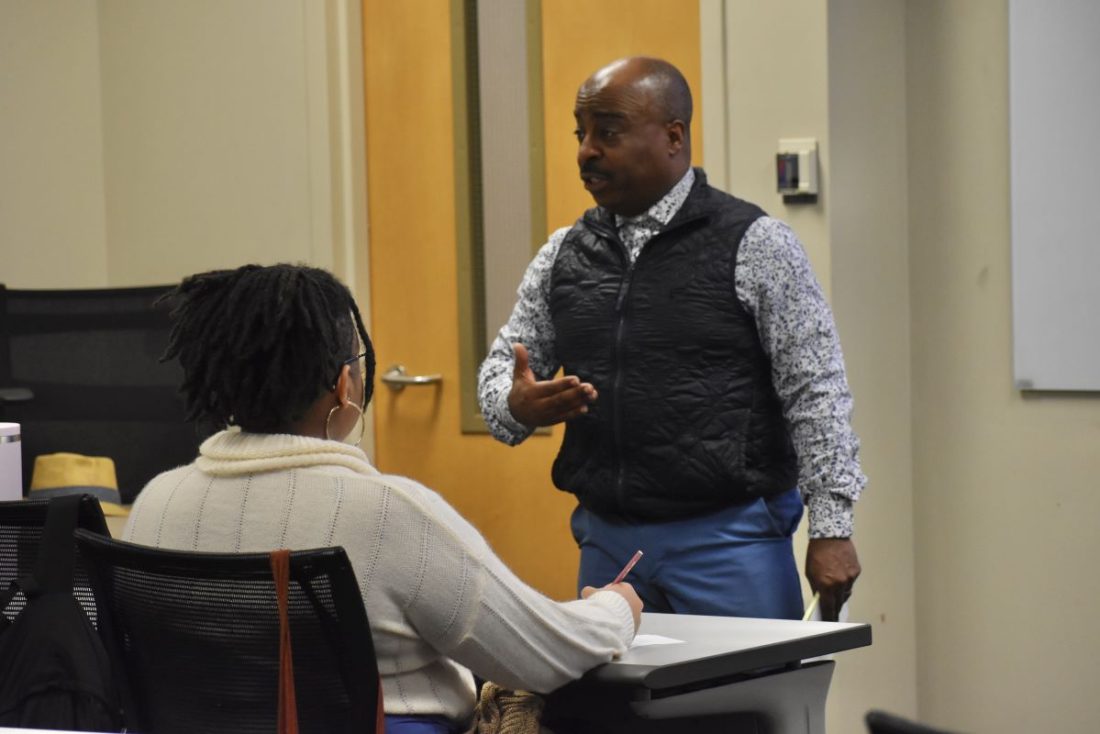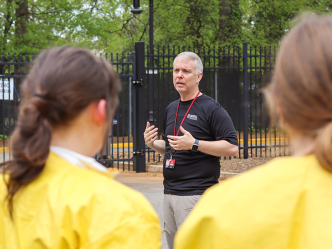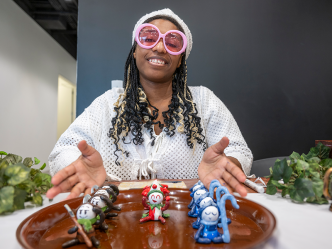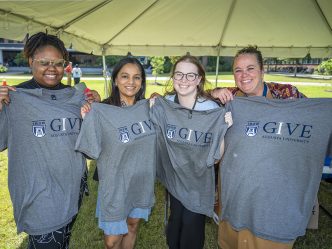You don’t always associate the health field with anthropology, but recently, Augusta University hosted Eric Bailey, PhD, professor at East Carolina University, as a guest lecturer to engage students and faculty on the intersection of both fields.
Bailey is a medical anthropologist whose focus is on ethnic and rural health disparities. He wants students to understand they don’t need to be in health fields specifically to still make an impact and have their voices heard when it comes to health issues. In fact, he encourages the students that are in the nontraditional route to get into health care.
“I think it’s advantageous because we (anthropologists) look at health care in a holistic way,” said Bailey. “Many times those nontraditional students come in with a new creativity and new orientation, and that’s what is desperately needed in public health and medicine.”
He added that’s not easy since students get in their own world and need to be encouraged at times to look outside their “silo” to become more involved and have their voice heard.
And it’s not limited to just college students. He hopes everyone in the community has a seat at the table to give their input on health issues that affect everyone.
“I think it’s very critical for Augusta and Augusta University to get more folks of the community, in some fashion, on board because that’s going to help things in the long run. You want to get more buy-in, you want more folks that are going to push your mission, your vision and support it. You want as many folks as possible in the planning phase,” said Bailey.
“I think it’s very critical for Augusta and Augusta University to get more folks of the community, in some fashion, on board, because that’s going to help things in the long run. You want to get more buy-in, you want more folks that are going to push your mission, your vision and support it. You want as many folks as possible in the planning phase.”
Eric Bailey, PhD, professor at East Carolina University
It was a fact not lost on the Augusta University faculty who were part of some of the lectures.
“I think everyone could take away how extremely important it is for health science to be literate in culture, particularly in cultures of minority groups that have historically had poorer health care outcomes: communicating across cultures and finding culturally-appropriate lifestyle interventions are vitally important,” said Ruth McClelland-Nugent, PhD, chair of History, Anthropology and Philosophy in Pamplin College of the Arts, Humanities, and Social Sciences. “Anthropology has a huge role to play, especially in public health, and it’s great our students had the opportunity to see that.”
McClelland-Nugent added that, more than ever, we need to understand the power of culture and how it shapes day-to-day decisions and interactions. Social science gives people the tools, and we need to research and understand it.
Aaron Johnson, PhD, director of the Institute of Public and Preventive Health, also had a chance to spend time with Bailey and hear his community presentation.
“I appreciate the diverse experience, both in terms of the various positions he has held over his career, as well as the different topics he has studied during his career,” said Johnson. “Most of the work that we do is community-based work, but it was definitely useful to hear how he has approached community-engaged work and how he was viewed that work through the lens of a medical anthropologist.”
Bailey recognizes the fact that, a lot of times, students feel their voices aren’t heard. But during his time at East Carolina, he has made it a point to make sure they are. He has seen first-hand how their voices can lead to growth and encourages that to happen everywhere he travels.
“Maximize their knowledge, their skills and their time because they want to be part of the solution. They don’t want to always be on the outside. Students allow us to make these changes that are truly connecting to the future of the university,” Bailey said.
 Augusta University
Augusta University




